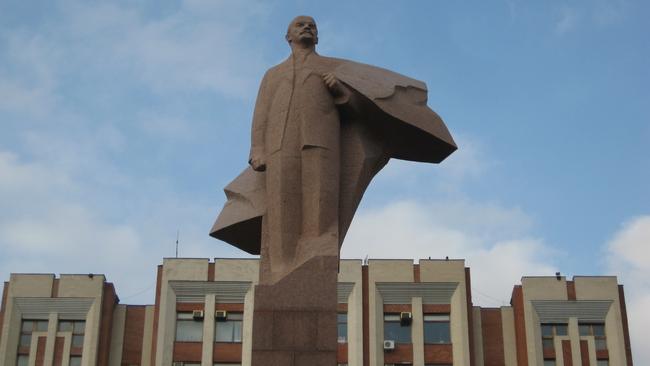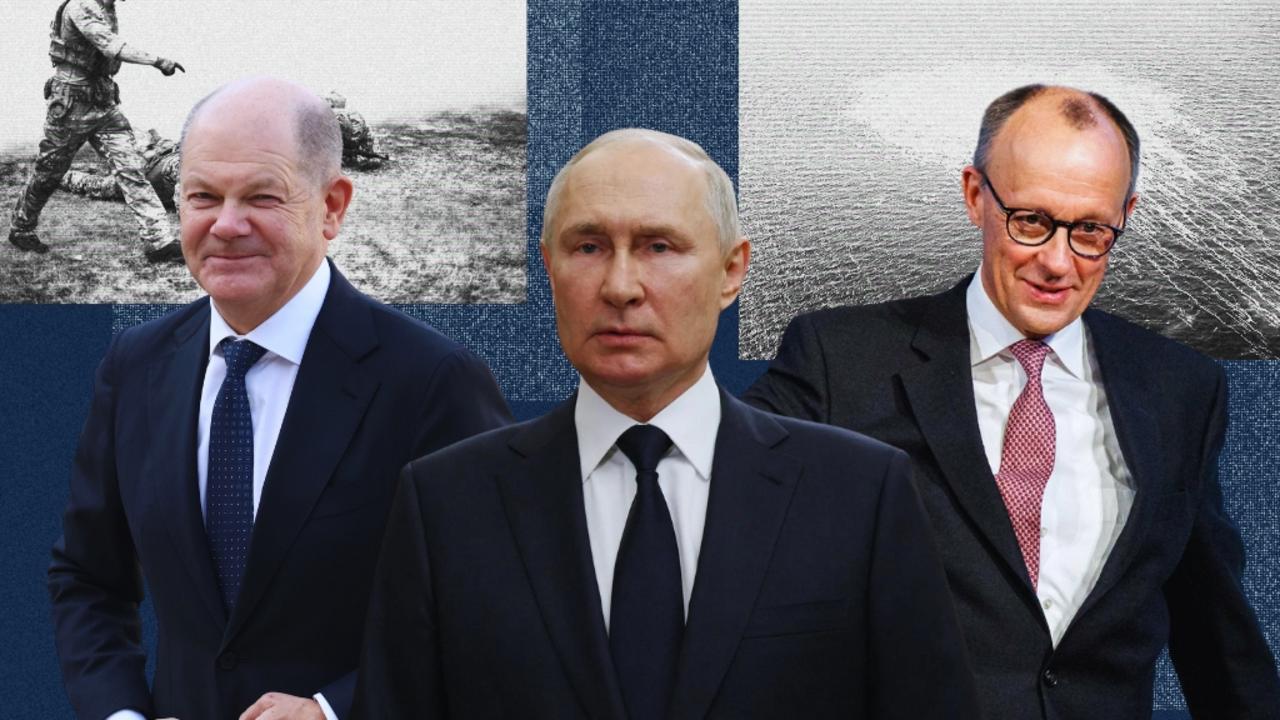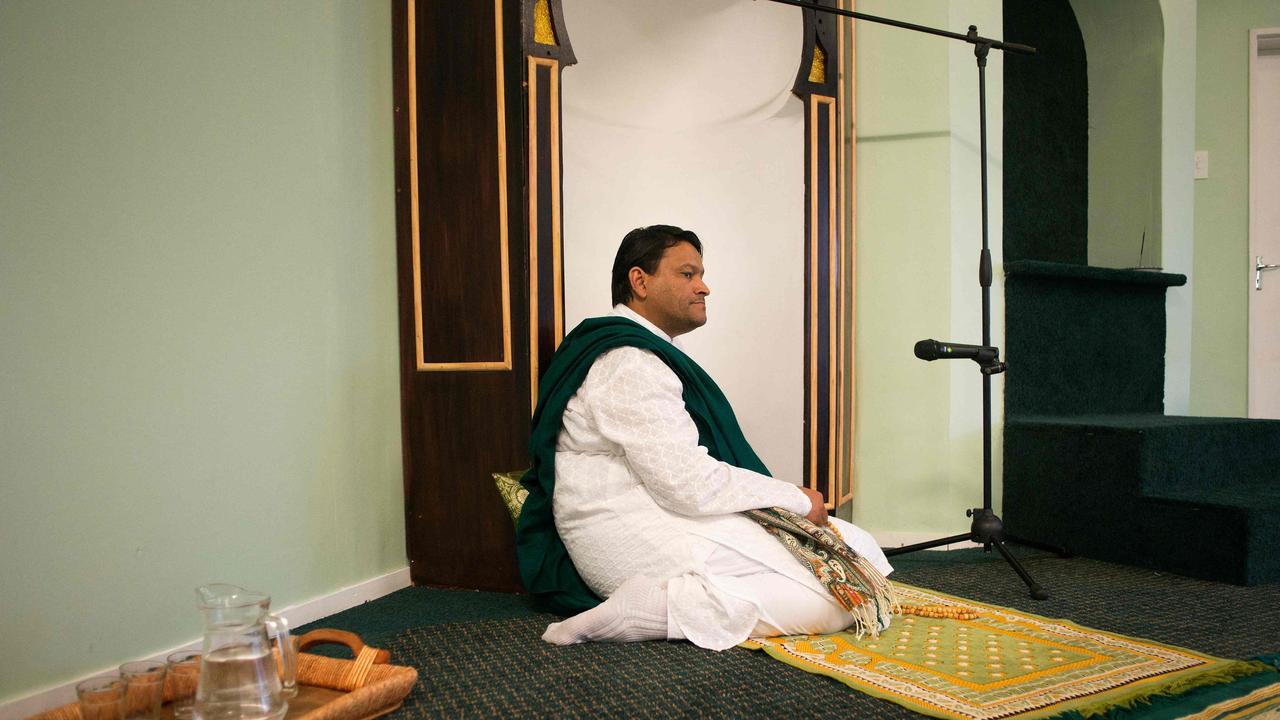Russian forces push to link with Moldova separatists
Russia aims to secure ‘full control’ over the south and east of Ukraine in a renewed offensive, moving past Crimea to link up with pro-Moscow Transnistria.

Russia aims to secure “full control” over the south and east of Ukraine in a renewed offensive, moving past Crimea to link up with the separatist territory of Transnistria in Moldova, a Russian commander has said.
Rustam Minnekayev said that securing a land corridor from the Donbas to Crimea was a chief objective, but also raised the prospect of troops pushing beyond the peninsula.
“Control over the south of Ukraine is another way to Transnistria, where there is also evidence that the Russian-speaking population is being oppressed,” Russian news agencies quoted Major General Minnekayev as saying at a meeting in the central Sverdlovsk region. Such an offensive would likely involve an assault on the port of Odesa, which has not had a full-scale attack.
Transnistria is a sliver of territory that broke away from Moldova and created a de facto independent, pro-Moscow republic in 1992. About 1500 Russian troops are stationed there as part of a truce agreed in 1995.
It was not clear if the comments made by Major General Minnekayev, the acting commander of the central military district, were the Defence Ministry’s official position. He was speaking at a defence industry forum.
A tributary of the Don River has temporarily halted the Russian army’s advance and become a new frontline of the war, defence experts said. Ukrainian forces have blown up bridges and defended crossing points over the Siverskyi Donets, a river that winds 1050km through the eastern steppe.
The river is one of the few notable geographical features in the otherwise flat and firm terrain of the Donbas, a coalmining region that is the main theatre of the war after President Vladimir Putin abandoned attempts to capture Kyiv. Russia has assembled 76 battlegroups, comprising 600 to 800 soldiers each, outnumbering the Ukrainians three to one, according to Western intelligence. Ukraine said Russia has moved a dozen crack military units away from the port of Mariupol to new battlefields in the Donbas.
Russian forces are trying to execute a pincer movement that would encircle the defending army in the Donbas. One British official warned last week that Mr Putin could still “win” the war amid signs his army could be starting to make tactical adjustments after a disastrous first two months.
In the forests of northern Ukraine, the defending troops successfully employed “shoot and scoot” tactics to target columns of Russian tanks funnelled down two main roads into Kyiv, using sophisticated anti-tank weaponry donated by the West such as British NLAWS and American Javelins. In the Donbas, the open country provides less opportunity for ambushes and is more suited to the conventional warfare of artillery, tanks and armoured vehicles, potentially allowing the Russian forces to bring their numerical advantage to bear.
The frontline between Russian forces pushing south from Kharkiv and Ukrainian forces now closely mirrors the bends of the Siverskyi Donets. William Alberque, a military expert at the International Institute for Strategic Studies, said the Ukrainian army was using the river to create “choke points” where they could pick off the Russian assault.
“Russia spent so much time and effort screwing around Kyiv, they gave Ukraine so much time to create all these incredibly sharp dragon’s teeth to prevent Russia from doing exactly the kind of large-scale manoeuvre warfare that any modern military would want to do,” he said.
Ukraine has threatened to blow up a 19km bridge that spans the Strait of Kerch and links Russia to Crimea in an attempt to sever a military supply line. The bridge provoked Western condemnation when it was opened in 2018 because it connects southern Russia to the annexed peninsula.
Oleksiy Danilov, the Ukrainian National Security and Defence Council chair, said Russia had been using the bridge to move soldiers, weapons and equipment into Crimea and southern Ukraine. “It would be good if our partners could provide us with something we could use to reach,” he told the NV radio station. “It would solve a lot of issues for us.”
Russia described his remarks as “nothing short of an announcement of an upcoming terrorist attack”.
The Times


